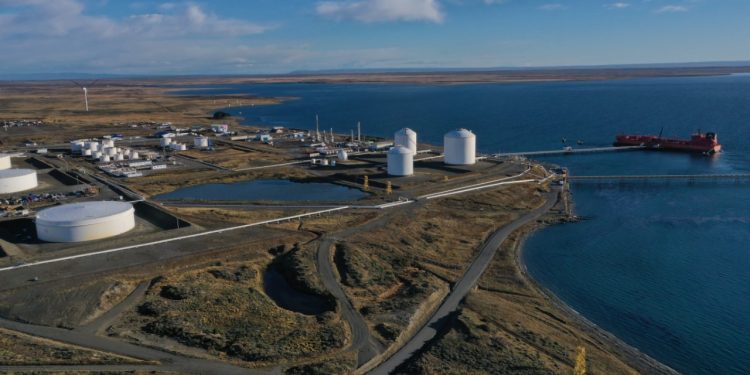The Mærsk Mc-Kinney Møller Center for Zero Carbon Shipping and the Chilean Ministries of Energy sign a Memorandum of Understanding (MoU) to further expand their partnership focusing on the development of green corridors.
In the Spring of 2022, the Mærsk Mc-Kinney Møller Center for Zero Carbon Shipping and the Chilean Ministries of Energy announced the Chilean Green Corridors Network allowing for green maritime transportation of goods in and out of Chile.
As explained, the project includes direct support from the Ministry of Transport and Telecommunications and the Ministry of Foreign Affairs.
Establishing green corridors will not only create a relevant pull for the development of zero carbon marine fuels and technologies – it will also provide the foundation for new, sustainable business models both onshore and offshore, accelerate research and take us one step closer to a global carbon neutral economy.
..said Bo Cerup-Simonsen, CEO of the Mærsk Mc-Kinney Møller Center for Zero Carbon Shipping.
The development of a national green hydrogen industry will be favored by supplying green fuels to transport in these corridors. This will generate local demand for hydrogen, in line with the efforts of the National Green Hydrogen Strategy and the Action Plan 2023-2030 currently under development.
..said Mr. Diego Pardow Lorenzo, Chilean Minister of Energy.
As informed, the Chilean Green Corridors Network demonstrates effective collaboration between private and public sector, which is critical for the maritime decarbonization and to enable the green transition on a global scale. This is well recognized by the Chilean Government and Ministries, who have put forward an ambitious roadmap for decarbonizing not only Chile, but the entire region.
Green maritime transportation is central to this strategy as Chile is highly dependent on domestic as well as international maritime transport due to the country’s geography. In November 2021, the country was among the first to sign the Clydebank Declaration to support the establishment of green shipping corridors.
With 100.000 ships consuming around m300Tons fossil fuel p.a. global shipping accounts for around 3% of global carbon emissions, a share that is likely to increase due to the foreseen growth in global trade in the coming decades. Achieving the long-term target of decarbonization requires new fuel types and a systemic change within the industry.
































































